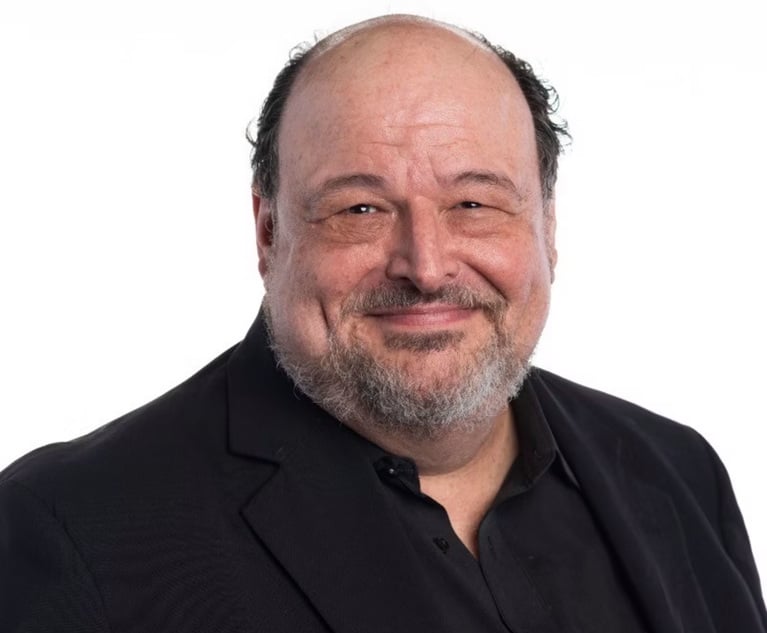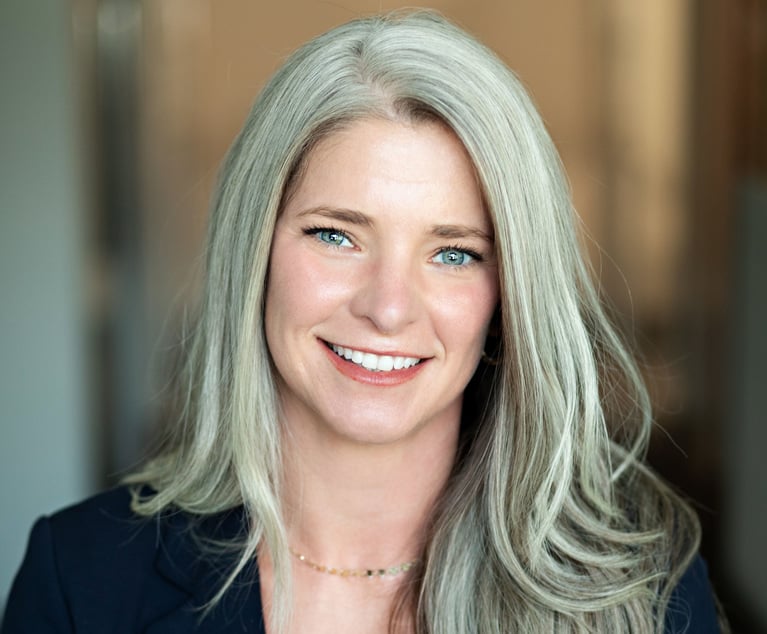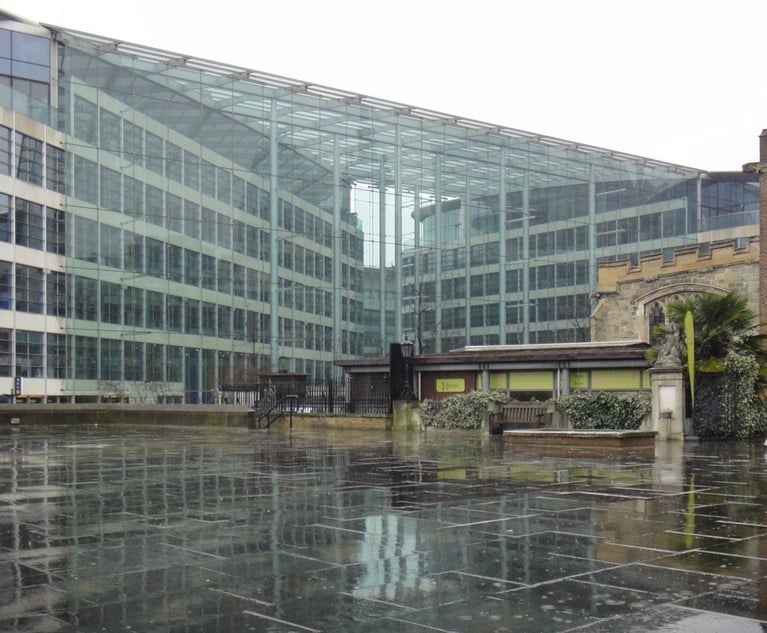The Chicago Bar Foundation makes it easier for legal departments to take on pro bono work
CBF crafts a set of best practices for corporate legal pro bono work
April 29, 2012 at 08:00 PM
3 minute read
Corporate legal departments, like their law firm and business partner counterparts, actively want to be engaged in their communities and help out where they can. But unlike law firms that are centered on the business of law and not supporting a greater enterprise, legal departments are often at a disadvantage when it comes to getting involved in pro bono work because they're not in the trenches, so to speak.
To this end, The Chicago Bar Foundation (CBF) earlier this year formally kicked off its Corporate Leadership Circle, which is intended to maximize the impact that corporate legal departments can have in the CBF's efforts to close the gap in access to justice. This includes participating in pro bono programs and providing support for legal aid and related initiatives.
The Corporate Leadership Circle's Statement of Principles commits members to four specific ideals: to adopt written pro bono practices and policies to support pro bono work; provide financial support for pro bono, legal aid and access to justice initiatives in the Chicago area; actively encourage their outside counsel to adopt sound pro bono policies; and embrace additional policies to aid with the first point when possible and practical, such as supporting broad-based advocacy efforts at the federal or state levels.
“We wanted to come up with an all-encompassing statement of principles that would serve as best practices for corporate legal departments that are doing the work,” says CBF Executive Director Bob Glaves. “It's pro bono, but it goes beyond that to other types of support. We often frame that as time, money and influence. Every lawyer, every law firm, every corporate legal department or company has that to some degree.”
Joan Fencik, chairman of the Corporate Leadership Circle and VP & deputy general counsel at Exelon Corp., says that one of the benefits to membership for in-house lawyers is that it pairs them with their outside counsel and helps to build those relationships. This can be especially helpful for in-house attorneys, many of whom are corporate generalists or IP lawyers and can be uncomfortable with the frequent litigation-oriented pro bono projects that present themselves.
“[The Corporate Leadership Circle] helps to engage inside people with something they're comfortable with,” she says. “And that's why partnering with law firms is good because people who aren't litigators feel like they have backup.”
Another Corporate Leadership Circle member, Chris McVety, corporate vice president of legal affairs at Mérieux NutriSciences Corp., thinks this is an important perk of the program. He says that as a result of his involvement, Mérieux's few-person legal department has done a significant amount of work for Lawyers for the Creative Arts, which provides free legal service to clients in all areas of the arts.
“This is interesting from a corporate perspective,” he says, “because most pro bono opportunities involve litigation or some type of court interaction, whereas this organization helps artists who don't have the financial means to register a trademark.”
This content has been archived. It is available through our partners, LexisNexis® and Bloomberg Law.
To view this content, please continue to their sites.
Not a Lexis Subscriber?
Subscribe Now
Not a Bloomberg Law Subscriber?
Subscribe Now
NOT FOR REPRINT
© 2024 ALM Global, LLC, All Rights Reserved. Request academic re-use from www.copyright.com. All other uses, submit a request to [email protected]. For more information visit Asset & Logo Licensing.
You Might Like
View All
'The Show Must Go On': Solo-GC-of-Year Kevin Colby Pulls Off Perpetual Juggling Act

How Amy Harris Leverages Diversity to Give UMB Financial a Competitive Edge
5 minute read
How Marsh McLennan's Small But Mighty Legal Innovation Team Builds Solutions That Bring Joy

Immigration Under the Trump Administration: Five Things to Expect in the First 90 Days
8 minute readTrending Stories
- 1Gibson Dunn Sued By Crypto Client After Lateral Hire Causes Conflict of Interest
- 2Trump's Solicitor General Expected to 'Flip' Prelogar's Positions at Supreme Court
- 3Pharmacy Lawyers See Promise in NY Regulator's Curbs on PBM Industry
- 4Outgoing USPTO Director Kathi Vidal: ‘We All Want the Country to Be in a Better Place’
- 5Supreme Court Will Review Constitutionality Of FCC's Universal Service Fund
Who Got The Work
Michael G. Bongiorno, Andrew Scott Dulberg and Elizabeth E. Driscoll from Wilmer Cutler Pickering Hale and Dorr have stepped in to represent Symbotic Inc., an A.I.-enabled technology platform that focuses on increasing supply chain efficiency, and other defendants in a pending shareholder derivative lawsuit. The case, filed Oct. 2 in Massachusetts District Court by the Brown Law Firm on behalf of Stephen Austen, accuses certain officers and directors of misleading investors in regard to Symbotic's potential for margin growth by failing to disclose that the company was not equipped to timely deploy its systems or manage expenses through project delays. The case, assigned to U.S. District Judge Nathaniel M. Gorton, is 1:24-cv-12522, Austen v. Cohen et al.
Who Got The Work
Edmund Polubinski and Marie Killmond of Davis Polk & Wardwell have entered appearances for data platform software development company MongoDB and other defendants in a pending shareholder derivative lawsuit. The action, filed Oct. 7 in New York Southern District Court by the Brown Law Firm, accuses the company's directors and/or officers of falsely expressing confidence in the company’s restructuring of its sales incentive plan and downplaying the severity of decreases in its upfront commitments. The case is 1:24-cv-07594, Roy v. Ittycheria et al.
Who Got The Work
Amy O. Bruchs and Kurt F. Ellison of Michael Best & Friedrich have entered appearances for Epic Systems Corp. in a pending employment discrimination lawsuit. The suit was filed Sept. 7 in Wisconsin Western District Court by Levine Eisberner LLC and Siri & Glimstad on behalf of a project manager who claims that he was wrongfully terminated after applying for a religious exemption to the defendant's COVID-19 vaccine mandate. The case, assigned to U.S. Magistrate Judge Anita Marie Boor, is 3:24-cv-00630, Secker, Nathan v. Epic Systems Corporation.
Who Got The Work
David X. Sullivan, Thomas J. Finn and Gregory A. Hall from McCarter & English have entered appearances for Sunrun Installation Services in a pending civil rights lawsuit. The complaint was filed Sept. 4 in Connecticut District Court by attorney Robert M. Berke on behalf of former employee George Edward Steins, who was arrested and charged with employing an unregistered home improvement salesperson. The complaint alleges that had Sunrun informed the Connecticut Department of Consumer Protection that the plaintiff's employment had ended in 2017 and that he no longer held Sunrun's home improvement contractor license, he would not have been hit with charges, which were dismissed in May 2024. The case, assigned to U.S. District Judge Jeffrey A. Meyer, is 3:24-cv-01423, Steins v. Sunrun, Inc. et al.
Who Got The Work
Greenberg Traurig shareholder Joshua L. Raskin has entered an appearance for boohoo.com UK Ltd. in a pending patent infringement lawsuit. The suit, filed Sept. 3 in Texas Eastern District Court by Rozier Hardt McDonough on behalf of Alto Dynamics, asserts five patents related to an online shopping platform. The case, assigned to U.S. District Judge Rodney Gilstrap, is 2:24-cv-00719, Alto Dynamics, LLC v. boohoo.com UK Limited.
Featured Firms
Law Offices of Gary Martin Hays & Associates, P.C.
(470) 294-1674
Law Offices of Mark E. Salomone
(857) 444-6468
Smith & Hassler
(713) 739-1250






